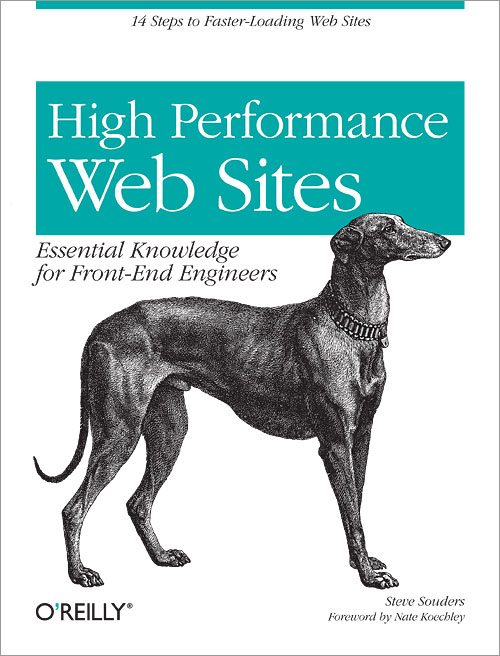by Warren Gaebel | Sep 20, 2012
 A long time ago (in computing terms, that works out to about half a decade), a man named Souders and a company named O’Reilly got together to publish a book about website performance. I wonder if they knew just how important that book would become?
A long time ago (in computing terms, that works out to about half a decade), a man named Souders and a company named O’Reilly got together to publish a book about website performance. I wonder if they knew just how important that book would become?
High Performance Web Sites: Essential Knowledge for Front-End Engineers, authored by Steve Souders, was originally published in September 2007, but it still pops up in conversation in blogs and forums today. In fact, when website performance is discussed, it’s almost assumed that people have read this book.
The book lists Steve’s top 14 website performance tips, in order from most to least effective. It explains how each tip works and measures how much the top ten websites could be improved if they followed the tip.
Release of this book touched off a flurry of discussions and articles. Others came up with their own top-ten-style lists. Some lists were well researched; others not so much. But everyone was talking and investigating. You might almost say that the move toward better performance gained its impetus from this book.
Given its age (ancient in computing terms), one might wonder whether the tips are still meaningful today. After all, browsers have changed considerably, the number of bytes per web page has skyrocketed, processes have migrated from the server side to the client side en masse, and studies have revealed just how willing users are to abandon ship if a page takes longer than 2 seconds to load.
The book’s author has wondered the same thing a few times. Every now and then he checks up on his tips to see if they’re as valid today as they were back then. For example, in The Performance Golden Rule, written earlier this year, he shows that his advice to focus on the front end is as valid today as it was 5 years ago. Keep your eye on Sounders’ blog.
Is it worth buying this old book now? After all, everything in it has been transcribed, summarized, critiqued, discussed, and reworded on countless web pages. When I got my copy, I got my answer. This book is only old in terms of years. In terms of usefulness, it’s as new as this morning’s sunrise.
It’s nice to have Steve’s tips and his explanations all in one place where I can refer to them easily. It’s better than having to wade through all the web-noise. Besides, I like having this little piece of Internet history in my collection.
Category: Website Performance | Tagged No Comments.








